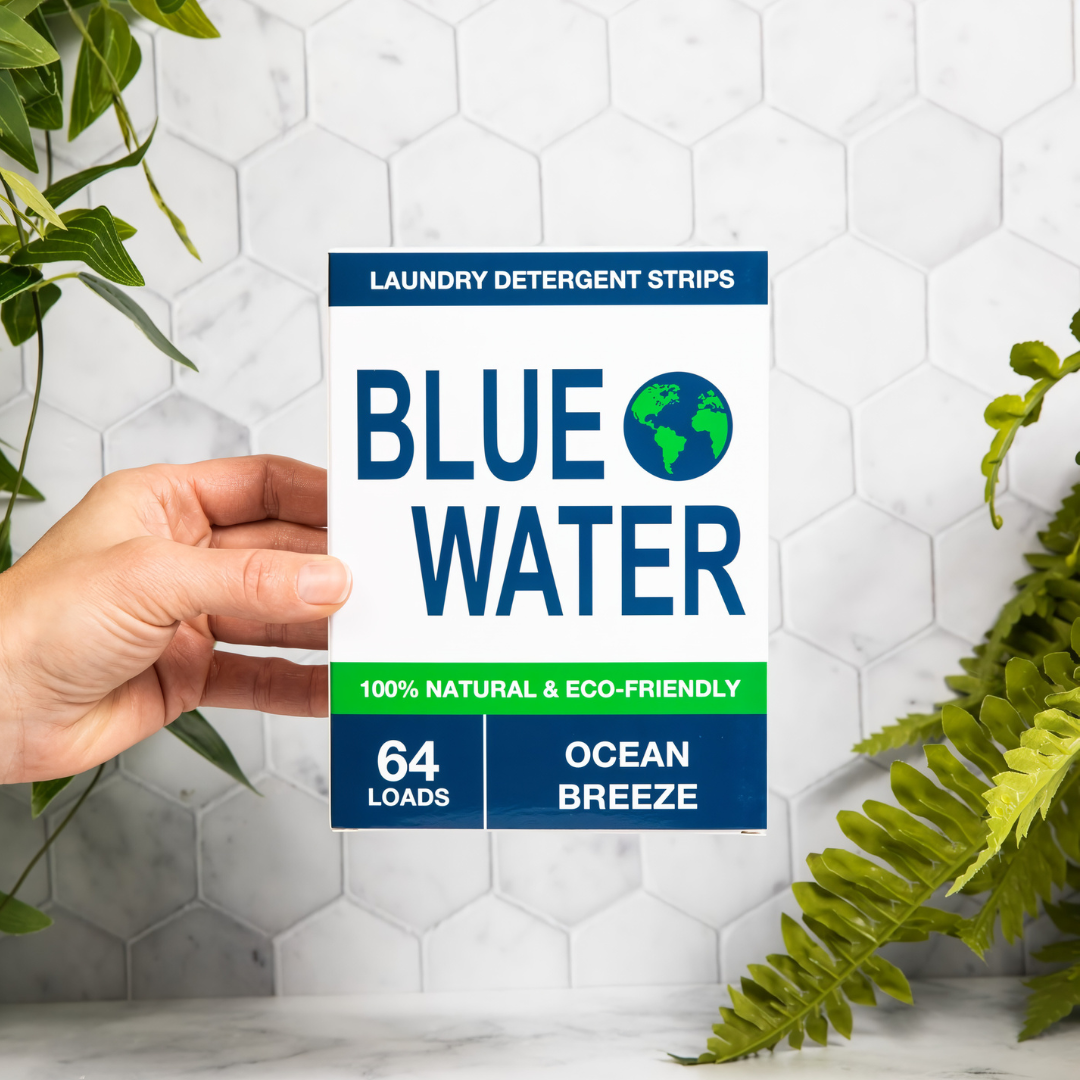Choosing organic laundry detergent comes with a range of benefits that extend beyond just cleaner clothes. Here are some key advantages:
Gentle On Skin
Organic detergents are ideal for people with sensitive skin, allergies, or skin conditions like eczema. The natural, plant-based ingredients in organic detergents are typically hypoallergenic, minimizing the risk of irritation or allergic reactions. This makes organic laundry detergents especially beneficial for households with babies, young children, or individuals with sensitive skin.
Environmentally Friendly
Organic laundry detergents are biodegradable, meaning they break down naturally without causing harm to waterways or aquatic ecosystems. Conventional detergents often contain harmful chemicals like phosphates and surfactants, which can contribute to water pollution and lead to the buildup of toxins in aquatic habitats. Biodegradable organic options help reduce your household’s contribution to environmental pollution and promote cleaner, healthier ecosystems.
Sustainable Sourcing
Many organic detergents prioritize using sustainably sourced ingredients, ensuring that the farming practices behind their products avoid harmful pesticides and promote biodiversity. These ingredients are often grown using eco-friendly farming methods that minimize environmental harm while supporting fair labor practices. In addition, many brands that offer organic detergents extend their sustainability efforts to packaging, using materials like recycled plastic or compostable packaging to further reduce their environmental impact.
Preserves Fabric Quality
Without the harsh chemicals found in conventional products, organic detergents help preserve the fibers and integrity of your clothing, preventing wear and tear over time. The natural ingredients are gentler on fabric, which helps maintain the softness, elasticity, and color vibrancy of your clothes. This results in longer-lasting garments and reduced fading, saving you money in the long run by extending the life of your wardrobe.
Safer For Household Use
Organic detergents are safer for the whole household, including children and pets, because they don't leave behind harmful residues or release toxic fumes. Conventional detergents can leave traces of chemicals on clothing that may cause skin irritation or allergic reactions, while their fumes may contribute to indoor air pollution. Organic detergents create a healthier home environment by eliminating these risks, providing peace of mind for families seeking a safer cleaning solution.
Supports Ethical Brands
By choosing organic laundry detergents, you’re sustainable, ethical, and cruelty-free practices. Such brands frequently go beyond environmental concerns to ensure that their products are ethically sourced, produced under fair working conditions, and not tested on animals. Supporting such companies aligns your purchasing choices with values like social responsibility, environmental conservation, and ethical consumption.
Discover The Best Organic Laundry Detergent: Blue Water Detergent Sheets
At Blue Water, we offer a premium, eco-friendly alternative to traditional detergents with our organic detergent sheets. Here's why we're the best choice:
- 100% Natural Ingredients: Our detergent sheets are made from plant-based ingredients, free of parabens, phosphates, and harsh chemicals.
- Plastic-Free & Biodegradable: Reduce plastic waste with our lightweight packaging that significantly lowers your carbon footprint.
- Safe For Sensitive Skin: Hypoallergenic and dermatologically tested for even the most delicate fabrics and skin types.
- Effortless Use: Just toss in the washer – no measuring or mess!
How To Choose The Best Organic Laundry Detergent For Your Needs
When choosing the best organic laundry detergent for your household, there are several factors to consider to ensure it meets your needs and preferences:
Cleaning Power
Organic detergents can vary in their cleaning effectiveness, so it’s important to choose one that meets your household’s cleaning needs. If you frequently deal with tough stains like grease, grass, or food, opt for a detergent with natural surfactants. These act as powerful stain removers, breaking down stubborn stains without relying on synthetic chemicals found in conventional detergents, ensuring a thorough clean with natural ingredients.
Scent Preference
Some organic detergents offer pleasant, natural scents derived from essential oils like lavender, citrus, or eucalyptus, providing a refreshing fragrance without the use of synthetic perfumes. However, if you or anyone in your household is sensitive to smells or suffers from allergies, consider fragrance-free options. Many organic brands offer unscented versions that provide the same effective cleaning without added scents, making them ideal for those with sensitivities.
Water Type
Your water type plays a significant role in the effectiveness of laundry detergents. If you live in an area with hard water, which contains high levels of minerals, your detergent may struggle to dissolve and clean effectively. In this case, look for detergents that contain natural water-softening agents, such as citric acid, to improve performance and prevent mineral buildup on clothes, ensuring a more effective wash.
Eco-Friendliness
If minimizing environmental impact is a priority, look for brands that emphasize biodegradable formulas and eco-friendly packaging. Many organic detergents use concentrated formulas, which reduce water usage and packaging waste, and are packaged in recycled or recyclable materials. Prioritizing brands that focus on sustainability ensures that both the detergent and its packaging have a lower environmental footprint, aligning with eco-conscious values.
Price Point
Organic laundry detergents can sometimes come with a higher price tag than their conventional counterparts, but many offer concentrated formulas that deliver more washes per bottle. Concentrated formulas require less detergent per load, ultimately providing better value for money over time. Additionally, the long-term benefits of choosing a product that is gentler on fabrics and safer for the environment can outweigh the initial cost difference.
Read also:

